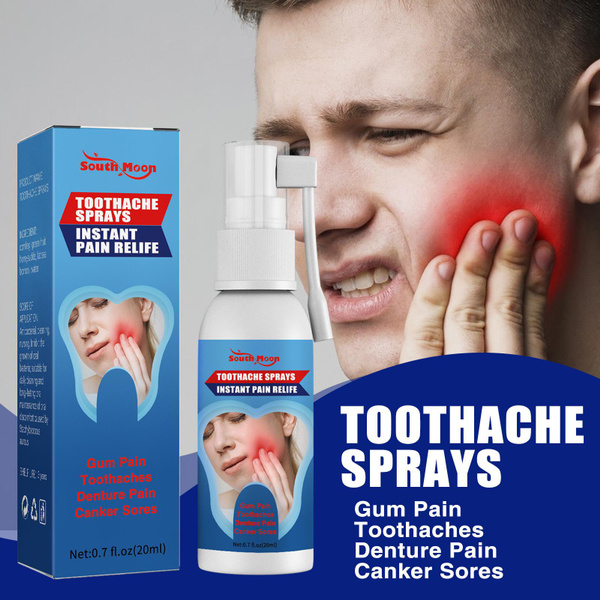What Causes Toothache No Cavity? Find Relief

Toothaches can be a real nuisance, and they often seem to come out of nowhere, leaving us wondering what could be causing the pain. While cavities are a common culprit behind toothaches, they’re not the only reason you might be experiencing discomfort. In fact, there are several reasons why you might have a toothache with no cavity. Let’s explore some of the possible causes and what you can do to find relief.
One of the most common causes of toothache with no cavity is tooth sensitivity. This occurs when the enamel on your teeth becomes worn or damaged, exposing the dentin beneath. Dentin contains tiny tubes that lead to the pulp of your tooth, and when it’s exposed, it can cause sensitivity and pain. Tooth sensitivity can be triggered by hot or cold temperatures, sweet or sour tastes, and even brushing or flossing. If you’re experiencing tooth sensitivity, your dentist may recommend a desensitizing toothpaste or varnish to help alleviate the discomfort.
Another possible cause of toothache with no cavity is gum recession. When your gums pull back from your teeth, it can expose the roots of your teeth, leading to sensitivity and pain. Gum recession can be caused by a variety of factors, including poor oral hygiene, genetics, and even hormonal changes. If you’re experiencing gum recession, your dentist may recommend a deep cleaning or other treatments to help restore your gums and alleviate discomfort.
Cracked tooth syndrome is another potential cause of toothache with no cavity. This occurs when a tooth becomes cracked or fractured, often due to biting or chewing on something hard. Cracked tooth syndrome can be difficult to diagnose, as the crack may not be visible on an X-ray. However, your dentist can use special tools to detect the crack and recommend treatment, such as a crown or filling, to help alleviate the pain.
Sinus pressure can also cause toothache with no cavity. When your sinuses become congested, it can put pressure on your teeth and gums, leading to discomfort and pain. This is especially common in the upper teeth, as the sinuses are located above the mouth. If you’re experiencing sinus pressure, decongestants and pain relievers can help alleviate the discomfort. In some cases, your dentist may recommend a sinus rinse or other treatments to help clear out your sinuses.
Bruxism, or teeth grinding, is another possible cause of toothache with no cavity. When you grind your teeth, it can put pressure on your teeth and jaw, leading to pain and discomfort. Bruxism can be caused by a variety of factors, including stress, anxiety, and even a misaligned bite. If you’re experiencing bruxism, your dentist may recommend a mouth guard or other treatments to help alleviate the discomfort.
Periodontal disease is a bacterial infection of the gums and bone that support your teeth. While it’s often associated with cavities, periodontal disease can also cause toothache with no cavity. If left untreated, periodontal disease can lead to serious complications, including tooth loss. If you’re experiencing symptoms of periodontal disease, such as bleeding gums or loose teeth, it’s essential to seek treatment from your dentist.
Dental work can also cause toothache with no cavity. If you’ve recently had a dental procedure, such as a filling or crown, it’s not uncommon to experience some discomfort or sensitivity. This is usually temporary and can be alleviated with over-the-counter pain relievers. However, if the discomfort persists, it’s essential to follow up with your dentist to ensure that everything is healing properly.
In addition to these causes, there are several other factors that can contribute to toothache with no cavity. Hormonal changes, for example, can cause changes in your mouth that lead to discomfort and pain. Nutritional deficiencies, such as a lack of vitamin D or calcium, can also contribute to tooth sensitivity and pain. Medications, such as those used to treat diabetes or blood pressure, can cause dry mouth, which can lead to tooth decay and discomfort.
- Schedule an appointment with your dentist to rule out any underlying conditions that may need attention.
- Practice good oral hygiene, including brushing and flossing regularly, to help prevent tooth sensitivity and discomfort.
- Use a desensitizing toothpaste or varnish to help alleviate tooth sensitivity.
- Avoid triggers that can exacerbate tooth sensitivity, such as hot or cold temperatures, sweet or sour tastes, and brushing or flossing.
- Consider using a mouth guard or other treatments to help alleviate bruxism or sinus pressure.
In conclusion, toothache with no cavity can be caused by a variety of factors, including tooth sensitivity, gum recession, cracked tooth syndrome, sinus pressure, bruxism, periodontal disease, and dental work. By understanding these causes and taking steps to prevent and alleviate discomfort, you can find relief from toothache with no cavity. Remember to always consult with a dentist to rule out any underlying conditions that may need attention.
What are the most common causes of toothache with no cavity?
+The most common causes of toothache with no cavity include tooth sensitivity, gum recession, cracked tooth syndrome, sinus pressure, bruxism, periodontal disease, and dental work.
How can I alleviate tooth sensitivity?
+You can alleviate tooth sensitivity by using a desensitizing toothpaste or varnish, practicing good oral hygiene, and avoiding triggers that can exacerbate sensitivity.
Can sinus pressure cause toothache with no cavity?
+Yes, sinus pressure can cause toothache with no cavity. When your sinuses become congested, it can put pressure on your teeth and gums, leading to discomfort and pain.
How can I prevent toothache with no cavity?
+You can prevent toothache with no cavity by practicing good oral hygiene, avoiding triggers that can exacerbate sensitivity, and scheduling regular dental check-ups to catch any potential problems early.